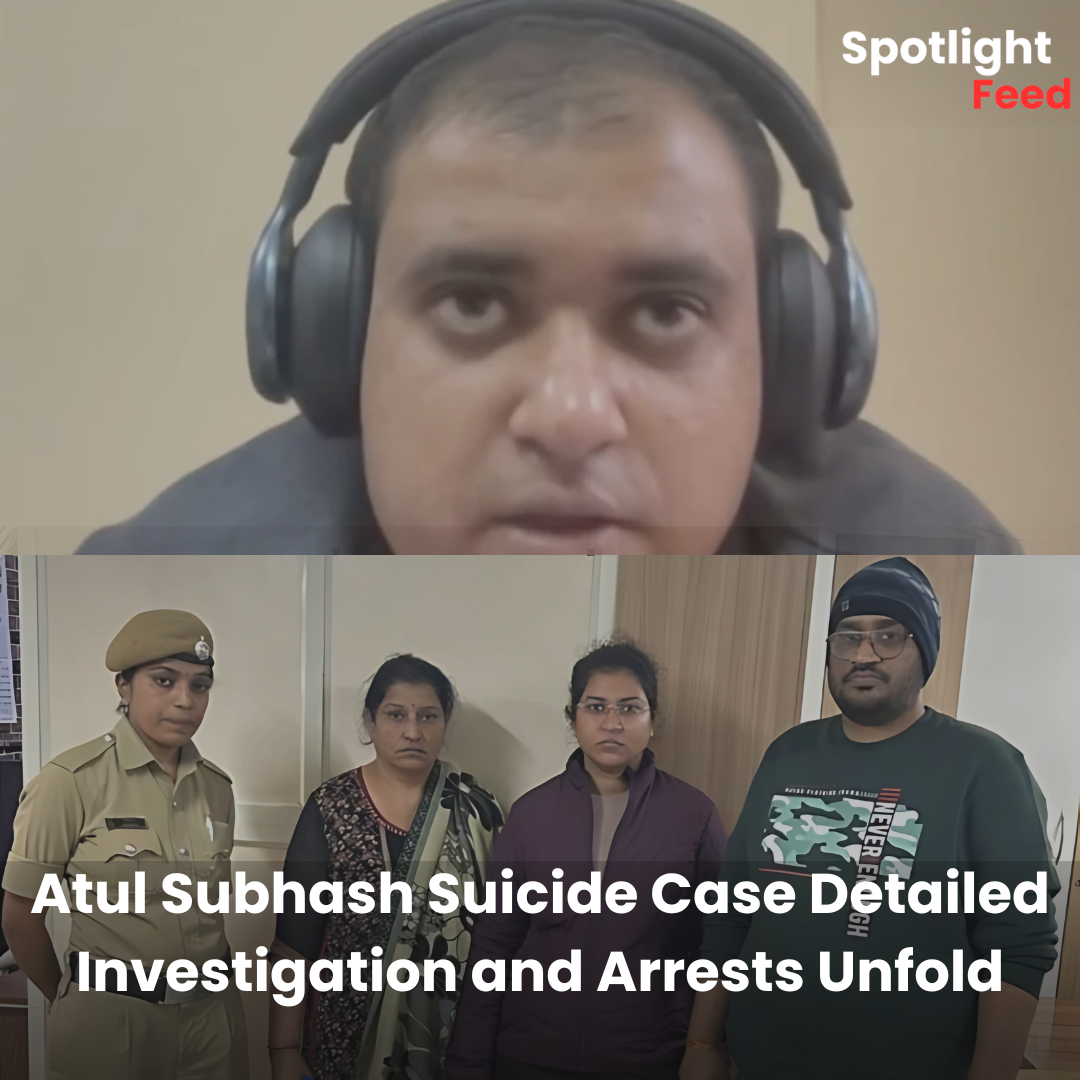The Atul Subhash Suicide Case reveals shocking allegations of harassment, corruption, and legal exploitation. Explore the detailed investigation, arrests, and the tragic events leading to this high-profile case.
The Atul Subhash Suicide Case has brought to light serious allegations of harassment, corruption, and legal exploitation. Bengaluru Police arrested Nikita Singhania, wife of the late Atul Subhash, from Gurugram, Haryana, along with her mother Nisha and brother Anurag from Allahabad, Uttar Pradesh, on Saturday. The three have been accused of abetment of suicide, following Subhash’s tragic death earlier this week.
Arrests and Legal Proceedings
A senior police officer confirmed Sunday that all three suspects were remanded to judicial custody. The arrests in the Atul Subhash Suicide Case came after Bengaluru Police sought help from their Uttar Pradesh counterparts to trace the accused, who had fled their Jaunpur residence. Notices were also pasted on the locked home of Nisha Singhania prior to the arrests.

The accused face charges under sections 108 (abetment of suicide) and 3(5) (criminal act with a common intention) of the Indian Penal Code. In addition, they have been accused of demanding Rs 3 crore to withdraw cases against Subhash and Rs 30 lakh for visitation rights to see his son. Despite applying for anticipatory bail in the Allahabad High Court, the arrests were made before the plea could be heard.
The Tragic Turn of Events
The Atul Subhash Suicide Case began with the discovery of Subhash’s body in his apartment in Bengaluru’s Munnekollal area on Monday. A 34-year-old deputy general manager at an automobile firm, Subhash left behind a 24-page suicide note and an 81-minute video, both detailing the alleged harassment he faced at the hands of his wife and her family. In the video, he displayed a board with the message “Justice is Due,” underscoring the severity of his despair.
His brother, Bikas Kumar, filed a police complaint naming Nikita, her mother Nisha, her brother Anurag, and uncle Sushil Singhania as responsible for driving Subhash to take his life. Subhash’s note detailed a series of allegations, including relentless legal harassment and demands for exorbitant sums of money.
Allegations of Legal Exploitation and Corruption
The Atul Subhash Suicide Case highlights multiple legal battles Subhash endured. He faced nine cases, including charges of murder, dowry harassment, and unnatural sex, with some cases implicating his parents as well. In his note, Subhash alleged that a family court judge in Uttar Pradesh had shown favoritism toward his in-laws and was involved in corruption. These allegations add a troubling dimension to the already complex case.
A Troubled Marriage and Its Fallout
Subhash’s marriage to Nikita in 2019 marked the beginning of a relationship that eventually turned tumultuous. Nikita, a software professional, and Subhash separated after repeated conflicts, leading to years of legal disputes. According to police, the intense personal and legal pressures culminated in Subhash’s decision to end his life.
The Atul Subhash Suicide Case reveals how legal systems can be weaponized in family disputes, leading to devastating consequences for all parties involved.
Arrests and Investigation Progress
Bengaluru Police arrested the accused shortly after launching a coordinated search operation across states. Nikita was apprehended in Gurugram, while Nisha and Anurag were detained in Allahabad. Notices were issued, and local police cooperation ensured swift action in the Atul Subhash Suicide Case. Sushil Singhania, also named in the case, remains at large as investigations continue.
A Case That Raises Questions
The Atul Subhash Suicide Case has sparked widespread discussion about the pressures of legal harassment, marital discord, and mental health challenges. The allegations of corruption and financial demands further complicate an already tragic narrative.
Subhash’s story is a sobering reminder of the importance of addressing mental health issues and creating fairer systems to resolve family disputes. Legal experts and activists are closely following the developments, with the Allahabad High Court’s upcoming decision on the bail plea likely to influence the case’s trajectory.
As the Atul Subhash Suicide Case unfolds, it continues to shed light on the darker aspects of legal and familial conflicts. The ongoing investigation and judicial proceedings will determine the accountability of the accused and whether justice can be served in this heart-wrenching case. The tragedy calls for introspection into how society and institutions can better support individuals caught in similar struggles.
For further insights and comprehensive content, please visit our homepage



